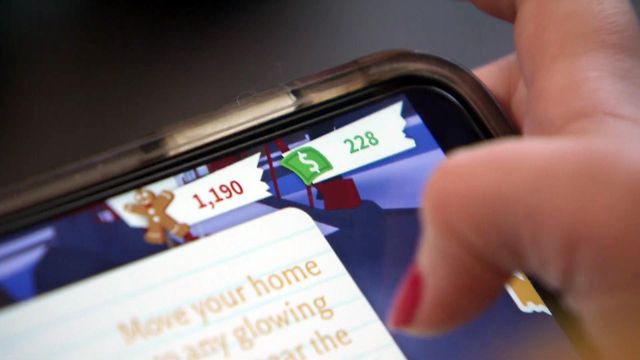5 On Your Side: Stop unwanted in-app purchases
More than $1,000 dollars in in-app purchases were made by a 9-year-old, and mom was mad.
Posted — UpdatedSurprise and costly charges by children are hitting families everywhere.
The problem is so pervasive that there's a name for kids who spend a lot of money on in-app purchases: Whales – just like the high-rollers in Las Vegas.
On the online game Roblox, for example, players use real money to buy what the game calls Robux, virtual money to spend on game extras.
"Sometimes it can get really confusing, and you don't now if you're buying something," 9-year old Logan Ireland said.
Charges ranged from 99 cents to $40, said her mom, Lesley Ireland.
"I didn't see it because it's all tiny charges just creeping in," she said.
With her iTunes account linked to her bank account, she eventually noticed money was missing.
"I was blown away with the sheer volume of these charges," Ireland said. "Thirty-nine pages of screen shots worth of charges."
The total: $1,610 in less than three months.
"That's more than I make in a paycheck," Ireland said.
Whether from in-app game purchases, streaming movies or smart assistants, many parents are finding out costs can quickly and unknowingly add up.
The problem is so serious with online games kids play that class-action lawsuits call them "bait apps."
5 On Your Side took the concerns to the Federal Trade Commission.
"We're definitely concerned with anyone deceiving consumers, to the extent that a company is trying to mask the actual monetary value, or dollar amount, that a consumer's spending, particularly when it's a kid," Frassetto said.
The agency took Apple, Google and Amazon to court about the confusion when real money is spent.
Companies are now required to make it clear with a pop-up message that a purchase is being made.
"There definitely needs to be a clear warning at the point where you might be spending real money," Frassetto said.
Kids spend so much time on phones, tablets, iPads and gaming systems, and they always find work-arounds - sometimes intentional, sometimes not.
So, are your settings really as secure as you want or need them to be?
Many devices have settings that allow you to block in-app purchases or, at minimum, require a password before a purchase is made.
Also, while it's more convenient, do not let your child use your device under your login. That's how a lot of kids' unintended purchases get through. Of course, sharing your password, even with your children, adds to the problem.
Ireland said she had measures in place, yet the charges went through. So, she contacted Roblox, which sent her to iTunes.
Apple refunded what they call "eligible purchases." That totaled $23.52 of the $1,610 her daughter racked up.
Days after 5 On Your Side contacted Apple about the purchases, they credited Ireland's account another $977.39.
The Irelands said they were "in shock" and thrilled to get some money back. But they still want others to be aware.
"I felt really bad because I felt like it was my fault," Logan said, calling the purchasing "really tricky."
Roblox spokeswoman Irina Efremova said, "We believe in offering players a transparent experience when it comes to in-game purchases and take great care to provide notices and disclosures to our consumers about purchases made both on our platform and through third parties like Apple or Google."
"I definitely think there's something in the game that's making it too easy for kids - you don't know if you're using real money or not." Ireland said. "I know her friends play it. I know I have co-workers whose kids or grandkids play. I would just say, you know, be vigilant."
Logan's advice is more to the point: "Don't buy anything."
Related Topics
• Credits
Copyright 2024 by Capitol Broadcasting Company. All rights reserved. This material may not be published, broadcast, rewritten or redistributed.





